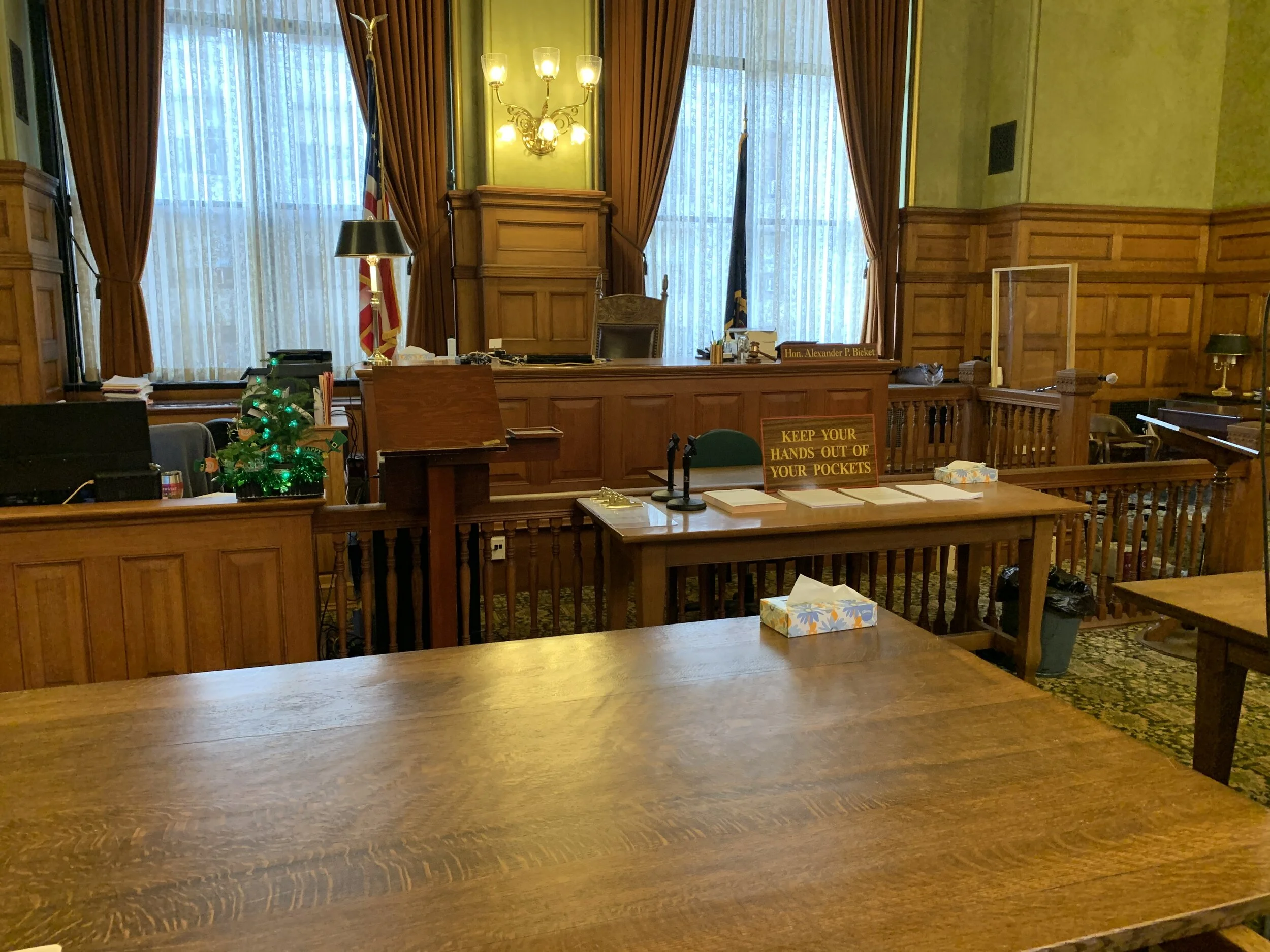
Trial Proceedings
Capone Law will fight for your rights at every trial proceeding. Read below to learn more, or contact us today for a consultation.
Formal Arraignment
If a case is “held for court” at a preliminary hearing, the Attorney for the Commonwealth will file a Criminal Information in the Court of Common Pleas. The Criminal Information must include the case caption, the name of the defendant, the date of the alleged offense, the location of the offense, and a plain statement of the elements of the crime charged. The rules governing Criminal Information documents are contained in Pa.R.Crim.Pro 560.
At the Formal Arraignment, the Court will provide the accused with the Criminal Information, and inform them of the date of their upcoming Pretrial Conference.
Any person accused of a crime has a right to have an attorney present at their Formal Arraignment.
Pretrial Conference
The Pretrial Conference is scheduled by the Court at the time of the Formal Arraignment. At the Pretrial Conference, the attorney for the Commonwealth, counsel for the defense, and the accused are all present.
During the pretrial conference, the attorneys may discuss: discovery, stipulations of fact and availability of witnesses, evidentiary issues, any defenses that must be disclosed in advance of trial, plea negotiations, and other matters relevant to the specific case.
Any person accused of a crime has a right to be represented at their Pretrial Conference.
Plea Proceedings
Before someone who is accused of a crime considers entering a plea, they should have conducted and intelligent and informed review of all of the evidence that could be presented against them at trial. In addition to understanding the evidence that could be presented, it is important to understand the laws that governs the admissibility of that evidence. You have a right to have an attorney to advise and represent you.
There are many different ways that a case can be resolved in the Court of Common Pleas. The attorneys at Capone and Associates have resolved thousands of cases and have the experience and knowledge to make sure that you are getting the best result.
Options outside of a traditional plea agreement include: rule 586 dismissal; reduction to summary offense; nolle prosequi; diversionary dispositions (Accelerated Rehabilitative Disposition “A.R.D.”, Drug Court, Mental Health Court, Veterans Court, DUI Court, and Domestic Violence Court). Each of these options is unique and may have individualized consequences on an accused persons life.
Every person accused of a crime has a right to a trial. If you are attempting to make a decision about how to proceed with you case, get Capone in your corner today!
Trial Proceedings
Every person accused of a crime has a right to a trial. The attorneys at Capone and Associates have tried hundreds of cases, and have a thorough understanding of the ins and outs of the trial process.
There are two types of trials that take place in the Court of Common Pleas, jury trials and bench (non-jury) trials.
Jury trials take place before a group of 12 people who are carefully selected by the attorneys during the voir dire (jury selection) process. A person accused of a crime is always presumed innocent unless the prosecuting attorney proves guilt beyond a reasonable doubt.
Bench trials (non-jury trials) take place before an assigned judge, only after a knowing and voluntary waiver of the jury has been completed. Just like in a jury trial, during a bench trial, an accused person is presumed innocent unless the prosecuting attorney proves guilt beyond a reasonable doubt.
The trial process is complicated and can be extremely difficult to navigate. You have a right to be represented by an Attorney at Trial. Contact Capone Law today for a consultation.
Diversionary Courts
Disposition of criminal cases through diversionary courts is not uncommon. Diversionary courts are all unique, have their own rules and regulations, and have different consequences. Diversionary courts in the Court of Common Pleas include:
ARD (Accelerated Rehabilitative Disposition)
EDP (Early Disposition Plea)
Veterans Court
Mental Health Court
Domestic Violence Court
DUI Court
Drug Court
For information about the possibility of resolving a case through one of these diversionary courts, contact Capone Law today.




